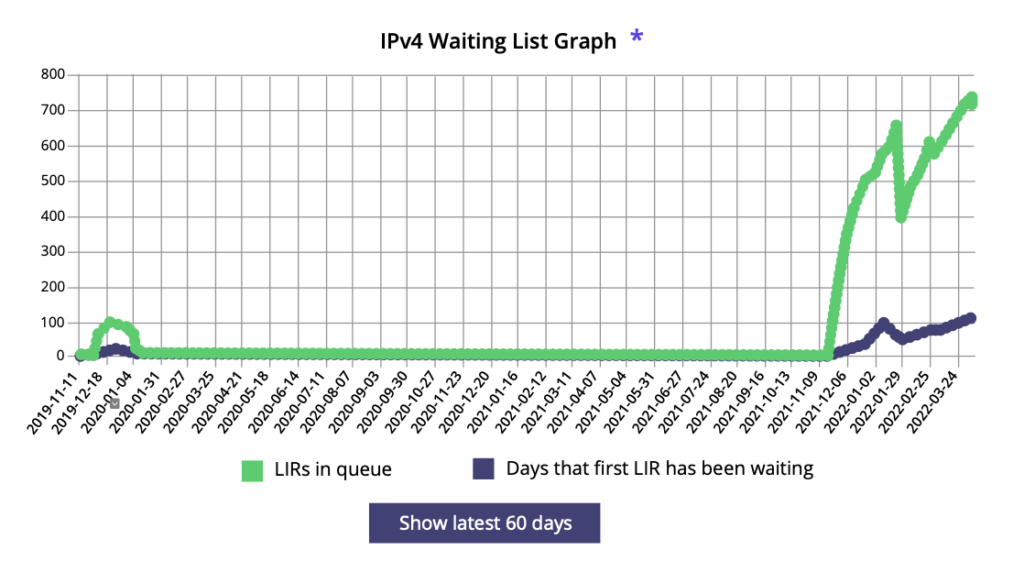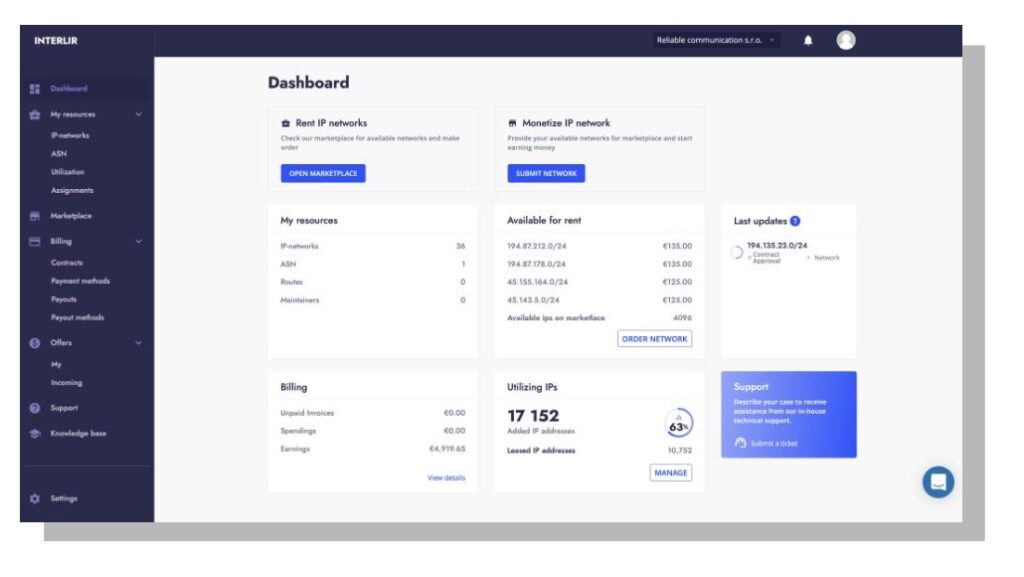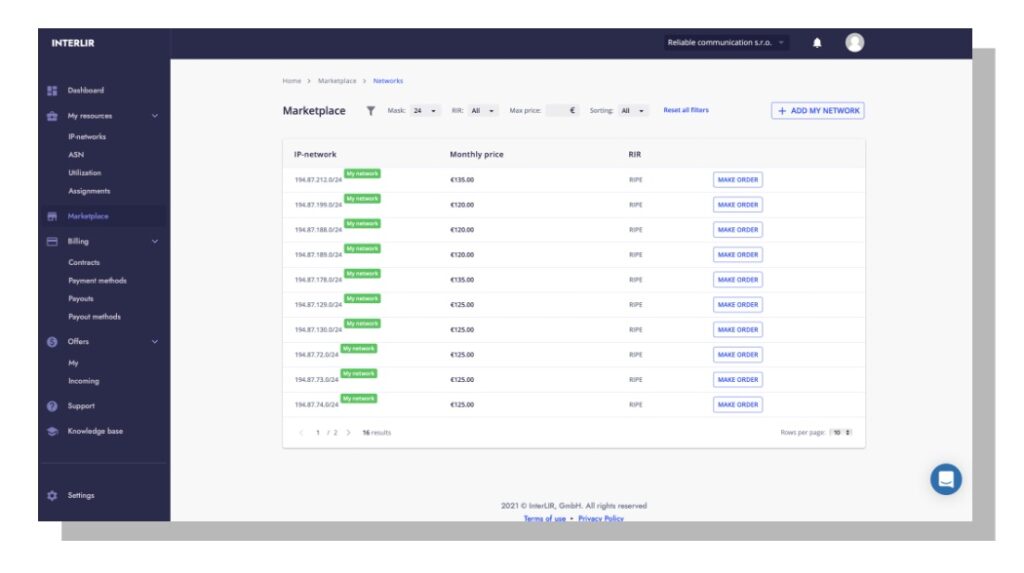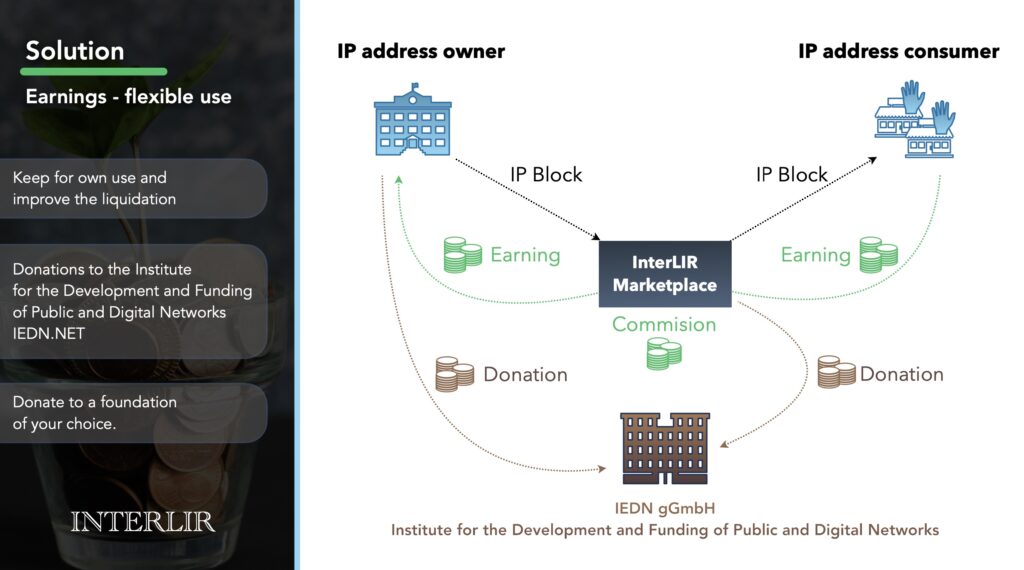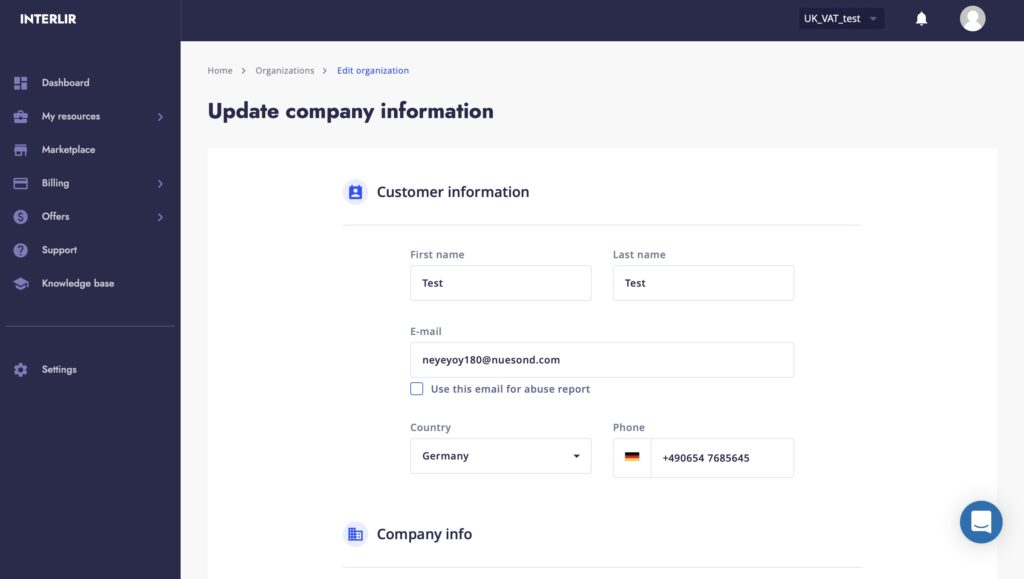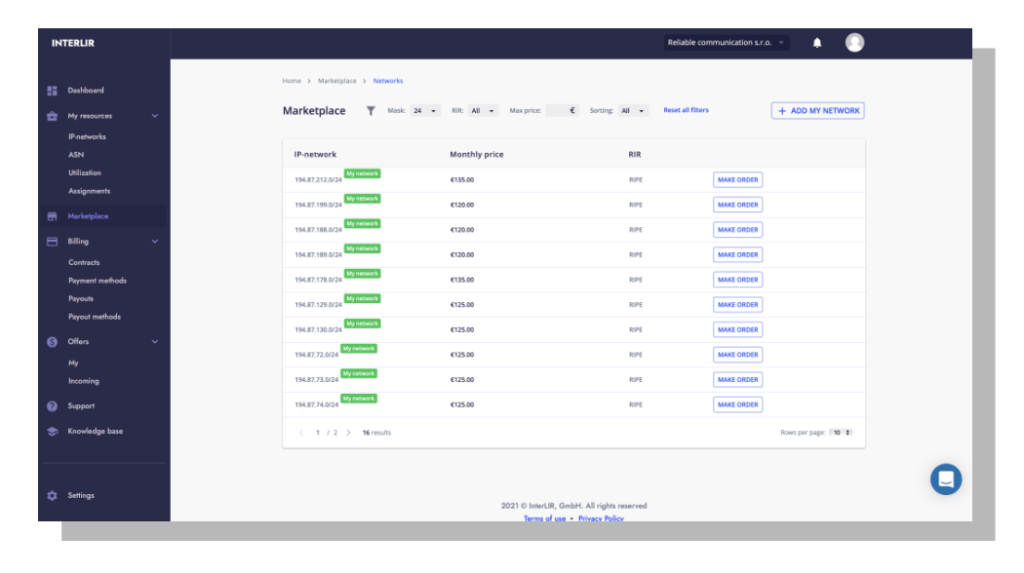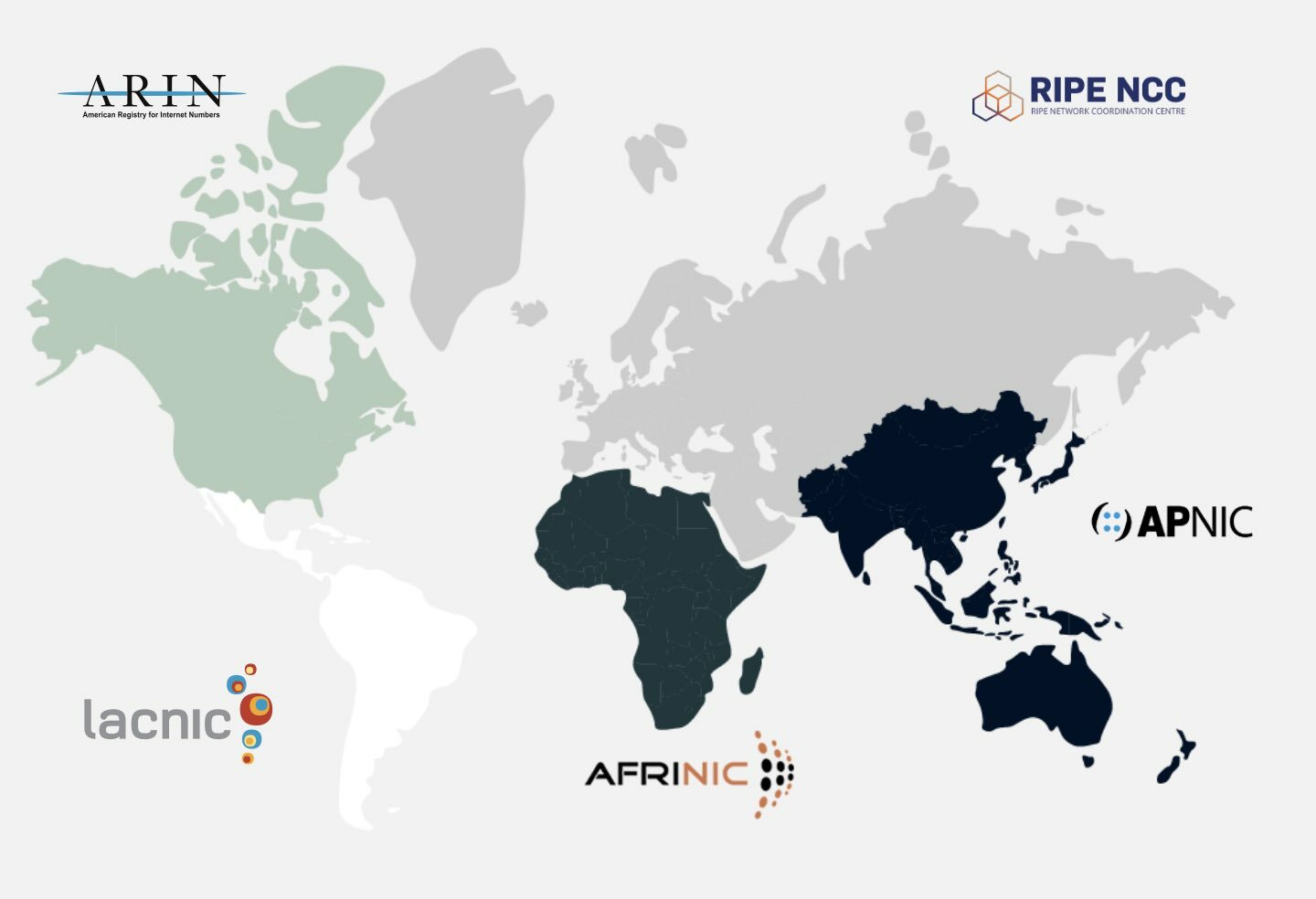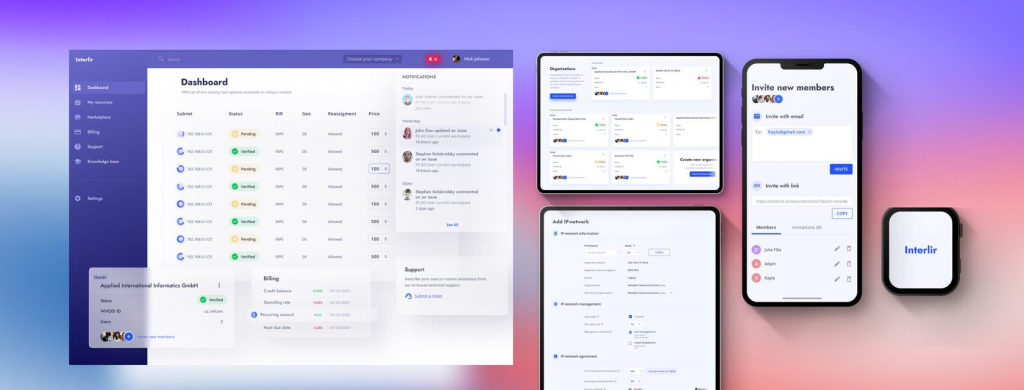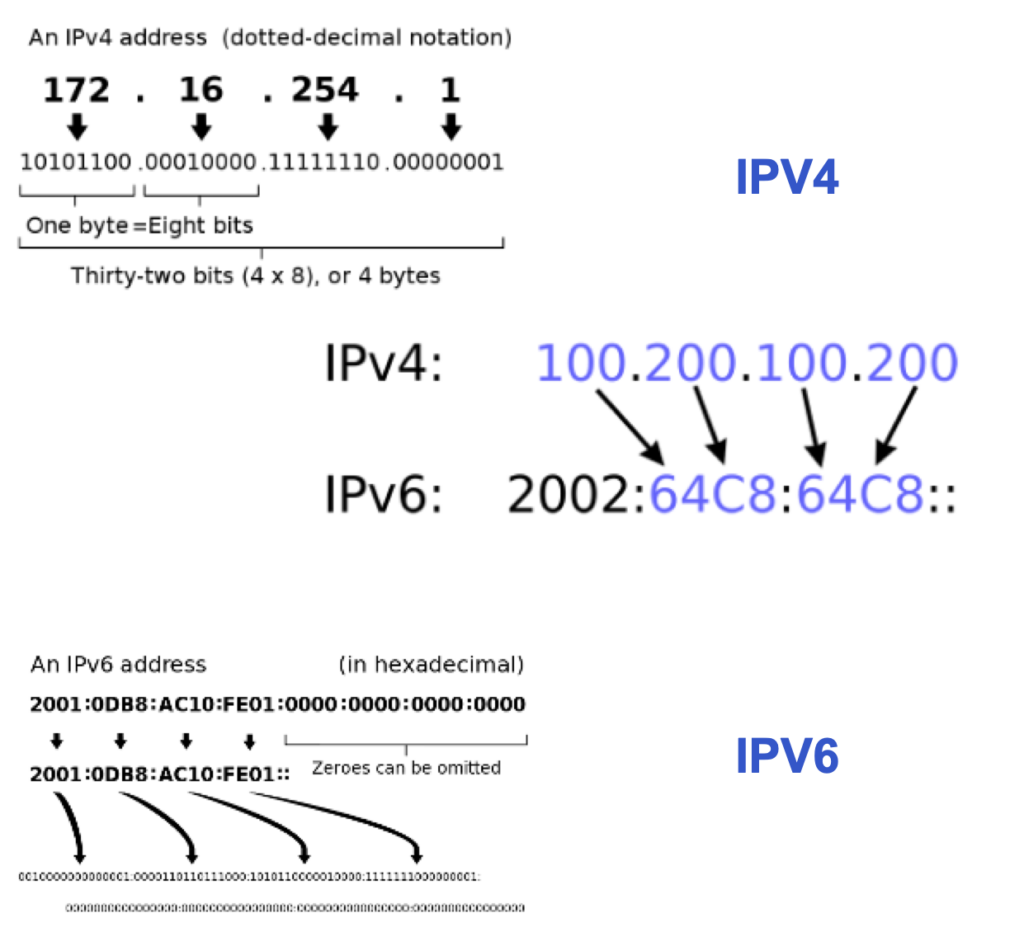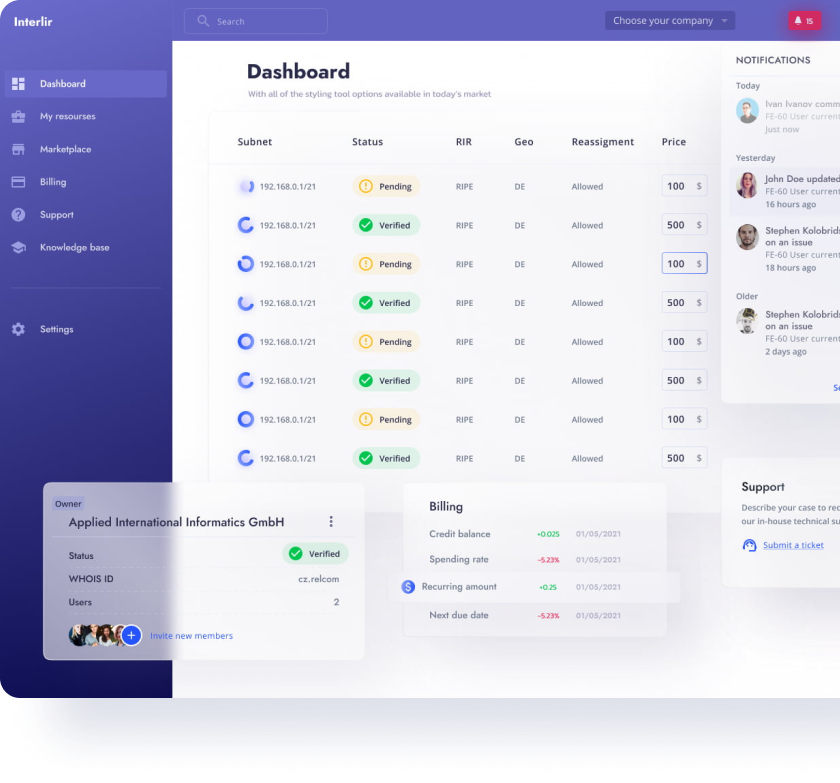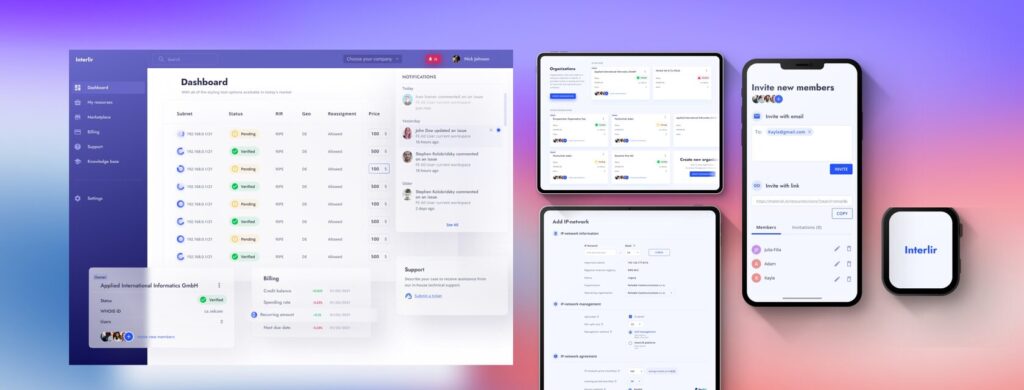The increasing demand for IP blocks has driven up prices and transformed overused IP space into a valuable asset for those interested in selling IPv4 networks. At InterLIR Marketplace, we provide an insider’s perspective on the industry, ensuring that you find the best deal when selling your used IP addresses to qualified buyers. Our dedicated experts are committed to serving your best interests, so reach out to us today and discover the potential value of your extra IPs in today’s market.
Don’t let your IP addresses go to waste; their value lies in their productive use rather than sitting idle in your data center. By putting them on the open market, you allow astute buyers to find and utilize them effectively. At InterLIR Marketplace, we possess comprehensive knowledge of these markets, and our existing network of buyers simplifies the process of finding interested parties to purchase your IP addresses. Don’t hesitate any longer—start selling your IP addresses with us today.
The process of selling IP addresses can be time-consuming, especially when searching for the right buyers and negotiating the best price. However, with the assistance of knowledgeable brokers, this process can become significantly easier. A reliable broker acts as your agent, facilitating negotiations with interested parties, resolving any pertinent matters, and handling contractual obligations and payment details. By working with InterLIR, you can experience less stress and maximize your earnings.
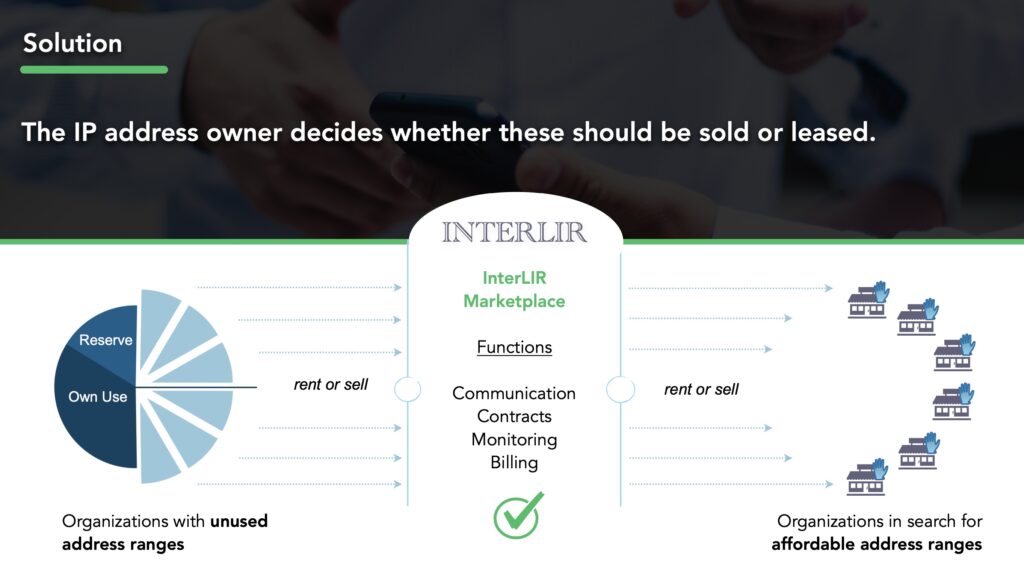
So, how do you sell IPv4 address anyway?
To enter the market as a new seller or transfer your IP allocation to different parties, there are several steps involved, which can vary in duration depending on the size and value of the transaction. It begins with identifying the target market or engaging in purchasing agreements. However, negotiations can become challenging due to varying prerequisites among clients. By partnering with regional brokers who act as representatives in specific markets, these difficulties can be addressed efficiently, alleviating the burden of understanding contracts and regulations. Skilled negotiation specialists handle these aspects, allowing both brokers and sellers to optimize their valuable time. Once ownership is transferred, the process primarily involves waiting for bids rather than engaging in tedious paperwork.
When you require assistance in transferring an IP address, we are available to connect you with a company that can meet your needs.
Check our guide : How to sell IPv4 with Interlir Marketplace
Benefiting from over a decade of industry expertise, we strive for efficient operations, completing all necessary tasks within a 24-hour timeframe. Our highly skilled team specializes in the seamless transfer of IP addresses from one location to another. If your current provider no longer meets your requirements, don’t hesitate to contact us. Give us a call today and discover how we can cater to your specific needs.
Sell IPv4 addresses in the RIPE region.
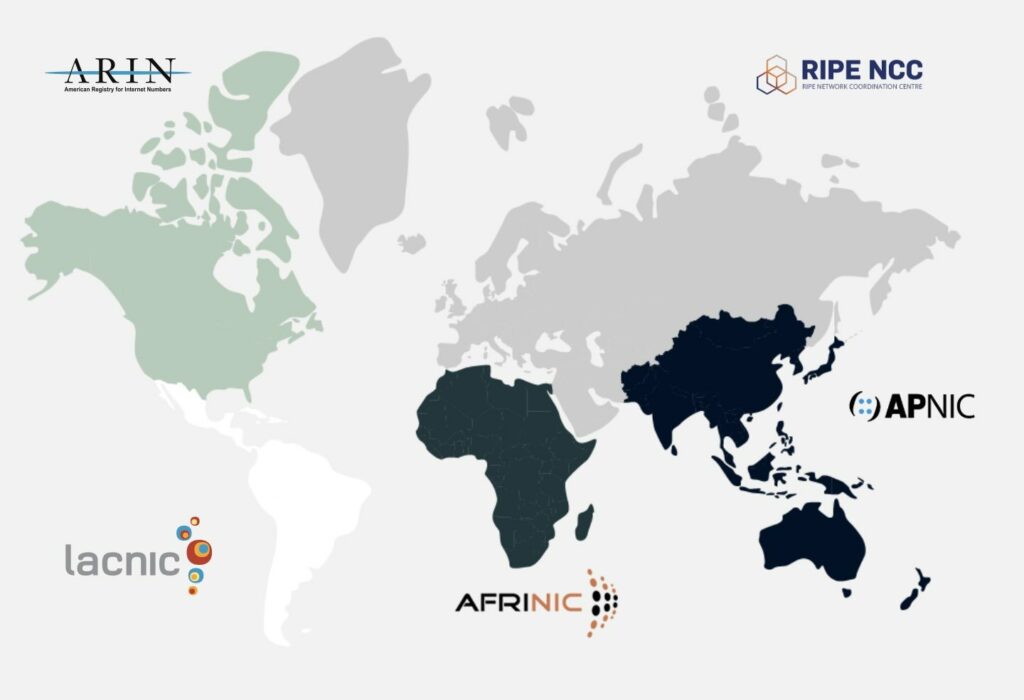
We are a company located in Germany, catering to clients globally, with a strong emphasis on Europe, the Middle East, and parts of Asia (RIPE). Our partnerships are designed for buyers looking to purchase additional IP addresses from sellers. If you have any concerns about our location or network size, please don’t hesitate to contact us. Our team will assist you regardless of your experience level with IP transfers, ensuring a smooth and seamless process.
Sell IP Addresses Worldwide.
InterLIR Marketplace is an experienced company that helps people sell their IP addresses, no matter where they are located. We provide quality service from the beginning to the end of the process and offer regular updates on interested parties. InterLIR Marketplace searches for potential buyers to ensure that sellers receive the best possible price for their IP addresses. We take care of all the necessary paperwork, and sellers receive instant payment upon a successful deal. The company is committed to providing top-notch customer service and maintaining transparent communication throughout the process. All the information on their website is thoroughly checked and double-checked to avoid any surprises. InterLIR Marketplace invites those interested in selling their IPv4 block to contact them to discuss the details. If they cannot reach an agreement, no worries, all sales are final.
When handling your IP addresses, we believe in providing quality service from beginning to end.
Once you register for our services, we will promptly inquire about the details of the information you intend to offer, whether it’s a single IP block or a larger grouping. After completing the intake form, which includes pricing specifics, contact information, and terms and conditions, we will provide regular updates on interested parties’ responses to your sale. Even if initial interest may be slow due to challenging times, patience is crucial in this process. Based on the offerings and desired selling prices, we will compile a list of potential buyers who are currently seeking what you have available.
At InterLIR Marketplace, we aim to support you every step of the way. One of our methods is ensuring your well-being throughout the process. We diligently search for interested parties who recognize the value of your offerings and are willing to pay accordingly. While our honesty may sometimes be tough, it is our commitment to accountability and working tirelessly in your best interest.
You deserve an open market that presents limitless opportunities for successful deals. Look no further than InterLIR Marketplace if you seek such a place. Our service serves as a reliable platform for selling assets, including IP addresses, at prices that benefit both sellers and buyers. Let us handle all the necessary paperwork while you receive instant payment upon successfully closing a deal.
You may think that selling IPv4 addresses is about putting up a sign and hoping for the best, but it’s not.
(Partner with InterLIR Marketplace for Successful IPv4 Address Sales)
Selling IPv4 addresses is not as simple as putting up a sign and hoping for the best. It requires careful consideration when choosing a reliable partner to collaborate with. At InterLIR Marketplace, we are dedicated to delivering the highest quality service to our partners, prioritizing transparent communication throughout the process. By working with us, you can expect a multitude of new opportunities and timely guidance whenever needed, eliminating any guesswork about your next steps. With our extensive 10-year experience in the industry, partnering with us guarantees your success in selling IPv4 addresses.
It would be an honor if you were to offer these IPv4 Addresses – call us, and we will oblige.
(Experience Exceptional Service at InterLIR Marketplace for IPv4 Address Sales)
At InterLIR Marketplace, we consider it a privilege if you choose to offer your IPv4 addresses through our platform. Our company is deeply committed to providing outstanding customer service, which is our core motto. Furthermore, we take great care in conducting thorough due diligence, ensuring that everything on our website has been meticulously checked and verified, leaving no room for surprises. If you have any additional inquiries or requests, we encourage you to give us a call so that we can discuss them directly. Rest assured, if we are unable to reach an agreement, our policy states that all sales are final. Trust InterLIR Marketplace for an exceptional experience in selling your IPv4 addresses.






